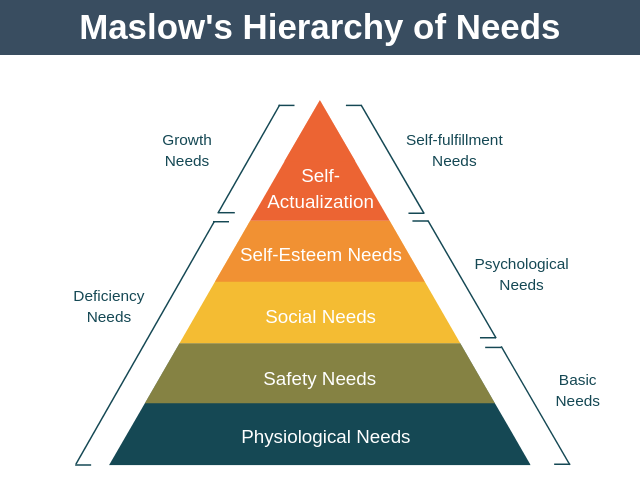
[Ep 135: Carrying the Sabbath into Our Monday.]
We’re looking at Jesus’ challenging call to discipleship – the need to renounce possessions, to “hate” others, and deny ourself. And we say that this parallels Abraham Maslow’s hierarchy of physical security and comfort needs, our social needs, and our self-esteem needs.
Jesus, in His call to discipleship, and out of His love for us, is telling us we need to transcend all of those needs – we need to turn them all completely over to Him, and trust Him to lead and provide and perfect us in all of those areas.
Great.
So how do we do that? How do we carry that into our week? Which relative should we “hate” today? (ha ha…)
Here’s a suggestion from Bishop Fulton Sheen – we should simply pay attention to where our thoughts stray. Is there something in particular that we are worried about? Or that preoccupies us? Or that we wish for?
Whatever rises to the top of the list – that is where we start. That is what we turn over to Jesus.
How?
Here are two suggestions:
Every time the thought arises, “give it” to Jesus. “Jesus, I entrust this to you.”
And, to go deeper, choose a scripture passage related to that thought and meditate on it.
And then settle on a resolution from that time of meditation. You will probably receive some new inspiration during that time of prayer – carry that with you and act on it in whatever way is appropriate.
There’s a third, bonus suggestion, in the postscript.
Praying for a week of productive renouncing for you-
Steve and Karen Smith – Interior Life
Postscript: St. Basil the great and habit-breaking
St. Basil the Great quotes St. Paul and reminds us that “we are citizens of Heaven.” And Basil adds, “we need a complete separation from and forgetfulness of old habits. It is impossible for us to achieve our goal of pleasing God unless we snatch ourselves away from fleshly ties and worldly society. We are then transported to another world in our manner of living.”
St. Basil zeros in on that most-human of characteristics – habits. Many of our attachments and unhealthy patterns are just that – patterns. Or habits.
A simple but effect approach to breaking habits is the “20-second rule.” Create a 20-second barrier between you and the pesky habit.
Let’s say the habit is your SSD (soul-sucking-device…). It’s simplicity itself. If you want to break the habit of constantly looking at your phone it is good to schedule when you’ll look at it (e.g. “I’ll give myself 5 minutes at the top of the hour”). To help yourself from cheating, make it a little harder to look at your phone by not just putting it away, but by also turning it off. Now if you are tempted to look at it, you have to wait for it to power on and that gives you a few seconds to pray to the Holy Spirit for self-control (the grace of the present moment). Creating a 20-second-ish barrier to an unwanted habit is an effective way to give yourself time to intervene.
Here is where the real power of the 20-second rule comes in – we can then use those 20 seconds to call on the power of the Holy Spirit to help us overcome our weak and fallen nature – “Come Holy Spirit and cause the battery of my SSD to short-circuit and explode.” Or, perhaps, “Come Holy Spirit and give me the grace of self-control to use my time wisely and avoid viewing things that lead me to low and earthly things.”
